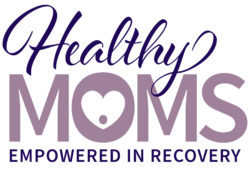If you are pregnant, you should be tested for Hepatitis C.
What is Hepatitis?
Hepatitis means inflammation of the liver, the vital organ that processes nutrients, filters the blood and fights infections. Heavy alcohol use, toxins, some medications and certain medical conditions can cause hepatitis.
Hepatitis is most often caused by a virus. In the United States, the most common types of viral hepatitis are hepatitis A, hepatitis B and hepatitis C. Although all types of viral hepatitis can cause similar symptoms, they are spread in different ways, have different treatments and some are more serious than others.
All adults, especially pregnant women and people with risk factors, should get tested for Hepatitis C.
Why is Hepatitis C testing important for pregnant women and at-risk children?
The CDC recommends you get tested for Hepatitis C with each pregnancy or if you were born to a mother with Hepatitis C. Children born to a Hepatitis C-positive mother should be tested at or after 18 months of age. Most people who get infected with Hepatitis C will develop a chronic, or lifelong, infection. Left untreated, chronic hepatitis C can cause serious health problems including liver disease, liver failure, liver cancer and even death.
The hepatitis C virus is usually spread when someone comes into contact with blood from an infected person. This can happen through:
- Birth:
Approximately 6% of infants born to infected mothers will get hepatitis C. - Sharing drug-injection equipment:
Today, most people become infected with hepatitis C by sharing needles, syringes, or any other equipment used to prepare and inject drugs. - Health care exposures:
Although uncommon, people can become infected when health care professionals do not follow the proper steps needed to prevent the spread of bloodborne infections. - Sex with an infected person:
While uncommon, hepatitis C can spread during sex, though it has been reported more often among men who have sex with men. - Unregulated tattoos or body piercings:
Hepatitis C can spread when getting tattoos or body piercings in unlicensed facilities, informal settings, or with
non-sterile instruments. - Sharing personal items:
People can get infected from sharing glucose monitors, razors, nail clippers, toothbrushes, and other items that may have come into contact with infected blood, even in amounts too small to see. - Blood transfusions and organ transplants:
Before widespread screening of the blood supply in 1992, hepatitis C was also spread through blood transfusions and organ transplants.

